The Forgotten Tale (J.M. Frey)
$5.99
The Accidental Turn Book II
Forsyth Turn has finally become a hero—however reluctantly. But now that Lucy Piper has married him and they’ve started a family in her world, his adventuring days are behind him. Yet not all is as it should be. Beloved novels are disappearing at an alarming rate, not just from the minds of readers like Pip, but from bookshelves as well. Almost as if they had never been. Almost like magic.
Forsyth fears that it is his fault—that Pip’s childhood tales are vanishing because he, a book character, has escaped his pages. But when he and Pip are sucked back into The Tales of Kintyre Turn against their will, they realize that something much more deadly and dire is happening. The stories are vanishing from Forsyth’s world too. So Forsyth sets out on a desperate journey across Hain to discover how, and why, the stories are disappearing… before their own world vanishes forever.
In this clever follow-up to The Untold Tale, The Forgotten Tale questions what it means to create a legacy, and what we owe to those who come after us.
Additional information
| Format | ePub (Nook), Mobi (Kindle), Paperback, PDF (Other) |
|---|
Read The First Chapter
One
“—and then the blue cable goes here, into this port.” I lean back so my daughter can make out what I am doing, should she decide that it is, indeed, fascinating. Apparently, it is not. Right now, she is more occupied with trying to stuff Library’s face into her mouth. The sodden lion plushie looks long-suffering—if a toy can have an expression—but otherwise content to be the source of her comfort.
And I am content to be second-best to a drool-encrusted collection of fake fur, stuffing, thread, and buttons. Let Library have her now. Soon enough she will want a bottle, and the coziness of her father’s embrace. I take satisfaction in the knowledge that she is the most fascinating part of my day.
Alis Mei Piper entered my life eight months and some two weeks after her mother and I defeated a crafty villain, outwitted a Deal-Maker Spirit, deciphered an ages-old riddle, and tore a hole in the veils separating our realities with a bit of parchment, a metal quill, and some salt water. Alis was heralded into the world not as a lordling’s daughter and heir ought. But she was well loved, and well come all the same. Gifts from colleges, neighbors, Pip’s students, and our mutual friends were abundant and generous.
Had we been in Turn Hall, my serving staff would have aided us in the early, sleep-deprived days of new parenthood. Here, Pip’s workmates brought us ready-made frozen meals to eat swiftly while the baby napped. Pip’s own parents gave us the rare ability to sleep and bathe alone in those first few weeks by coming over every other day to watch our newborn. My own parents are long dead, and though I wish Alis’s paternal grandmother could have known her namesake, I am glad that her paternal grandfather is not present.
Elgar Reed, unfortunately, is. He sent us a very large bouquet of flowers and some celebratory wine, along with a startlingly large painting of Turn Hall looking, well, exactly as it ought. It was signed in the bottom corner by one of those fellows who worked on the Lord of the Rings film designs, and was Reed’s first, but sadly not his last, foray into breaching the tight-knit tapestry of our family.
I wish he would just go away. He wishes I would call him father.
Since the Lady Alis’s grand and squalling entrance, it has been another ten months. I have been a resident of this realm for nearly two years, and Alis is now strong enough to hold herself upright if she can cling to something. Soon she will be making the first swaying, drunken motions toward walking, and then, if she is anything like my brother was, the Writer help us. Even though I am the younger son, I can still recall Kintyre bashing into the sides of tables and knocking over chairs, tumbling down small flights of stairs and coming back home with half the covey forest stuck in his hair, or a great portion of the fish pond leaking from his boots. Alis has my watery gray-blue eyes (not green, thank the Writer, not green), and my mother’s thick, curling auburn hair, though of a shade much closer to Pip’s black than that of the former Lady Turn. Alis also has my mother-in-law’s nose, and Pip’s Asian facial structure. But the look in her gaze when she is plotting mischief is all Kintyre Turn.
Right now, Alis is bouncing gleefully in a romper attached to the lintel of my office doorway, smashing a sodden Library against the edge of the harness each time her chubby little feet leave the carpet, and practicing three of the four words she has—book, Da, and no. Ma is the fourth word, but she’s clever enough to have attached it to Pip already, and Pip is downstairs. I can tell, with one look over my shoulder, that Alis is unhappy, and that she fully intends to throw Library at me the moment I stop talking to her.
Which—why on Earth would I ever cease to talk to my daughter? Silly, dear thing.
“And then we turn the drive back around, like this.” I demonstrate. “And this is the on button. Do you see, my dearest? Right here. Click! On it goes, and Da’s server is now online!”
“Aaa-aaah!” Alis compliments.
Downstairs, a pan rattles and the oven door slams. Alis startles. She looks down at Library, as if to ascertain that he too heard it. Library is silent on the matter, and so Alis chooses to follow suit.
The people of Hain celebrate the longest night of midwinter with feasts and light, for it is the turn of our calendar. And downstairs, my wife is trying to recreate it for me. I tried to help prepare the finger foods, and was instead banished to my office. Lucy Piper brooks no incapability in her kitchen, and I am a man who grew up with a cook and a wait staff.
In Lysse, it was my habit to invite the people of the Chipping—farmers, merchants, tradesmen, travelers, nobility, and all—to a feast at Turn Hall. The gathering brought my Chipping together for three days and two nights. Our little affair here will be smaller, only a single night, and starting in . . .
“Oh,” I say, glancing at the clock in the corner of my monitor. “I do think it is time for your dinner, my lady Alis.”
Alis kicks her feet in an uncoordinated jig, and I pull my bones up off the floor to give her a cuddle. Alis drops Library and reaches out for me, pleased that I’ve abandoned my boring old computer for her. I scoop up her compatriot and tuck him between our bodies, for, like his namesake, he doesn’t like being left behind.
“Hush, though, sweeting,” I caution Alis. “There is a dragon in the kitchen, making all sorts of smoke, and we daren’t anger it.”
“I heard that!” Pip calls, but there is humor in her voice. I cannot help the grin that curls over my lips in response.
“Perhaps if we sing to soothe the beast?” I ask Alis, and she pops her fist against my chin to indicate her assent. “Very well. Ready?
Ah! The fields are dappled over, my love,
And the spring sings high and sweet!
Ah! The fairies flit and spin, my love,
And so it’s time for us to meet!
The sun sinks ever lower, my love,
It marks an end to play,
So come straight to my side, my love,
Now at the close of day.”
Together we go down to the kitchen, where Pip has left breast milk in the fridge, and Alis smacks my shoulder in time with the children’s song. Pip herself is in the dining room, putting something onto platters out of our view.
“Come not through murky forest, my love
Where trolls and goblins bide,
Come not oe’er standing pools, my love
Where kelpies wait and hide.
Come not through vasty deserts, my love
Where sun and djinn are cruel,
Come not through the icy wastelands, my love
Where reflections baffle fools.”
It’s a song meant to teach children the dangers of the unknown world, though it is surprisingly catchy. I push the buttons on the microwave in time to the beat.
“Come not past cavern mouths, my love
When they issue smoke and steam,
For those are the homes of dragons, my love
Where they hoard things bright with gleam.
Heed not to the call of sirens, my love,
Nor any creature of deep,
For they long to sing away children, my love,
To hold, to drown, and to keep.
Go not through the lofty halls, my love,
Made of fir, or ash, or pine,
For those are the realms of the elves, my love,
And to trespassers they are not kind.”
The bottle sufficiently warmed, I pop the plastic nipple into Alis’s obliging mouth and with her tucked warm and sweet against my hip, we spin in the kitchen in a gentle waltz.
“When you come to me, my dear sweet love,
Come safe, come sure, and come true.
For adventures are all well and good, my love,
But home is now calling for you.
Come only to the parlour, my love,
Come only down the stair,
Come to the fire with me, my love . . .”
“. . . and sit with your family there!” my wife finishes behind me. Alis and I pause in our waltz to drop kisses onto Pip’s cheek. Well, I kiss. Alis smacks her face off Pip’s, making a loud “MUAH!” sound that she must have learned from wai po. I abandon the now empty bottle in the sink, earning a sideways look of reproach from my wife. Ah, yes, I do sometimes still forget that I have no servants here.
“All set up?” Pip asks as she puts the offending bottle in the dishwasher. Alis makes grabby hands at both me and her mother, clearly unsure about which of us she is more excited to touch. I make the choice easy and step up to sandwich her between us. We both get thankful pats on the neck with fat baby hands.
“I have the server hooked up and the modem working. Tomorrow, I shall calibrate the Netflix.”
“Neeeerd,” Pip teases.
“Indeed,” I agree. “And you love me.”
“That’s true.”
“Bah!” Alis adds.
Then we head into the living room. With Alis tucked against my shoulder, I begin the lengthy process of selecting music to play softly in the background. Were we at Turn Hall, I would have hired Turnshire’s resident musicians, but here, I must select a list of songs from a fiddly little box.
Very slowly, I am learning to use the magic of this realm—the wirelesses, and the microwaves and Bluetooths, and the wands that are boxes. In short, all the things the people here take entirely for granted. For Pip, navigating a website is as effortless and instinctive as breathing. For me, it is a fascinating, and sometimes infuriating, challenge. Or at least it was, until I fully understood the knack of navigating with one’s fingertip.
But now, my paperwork has all been sorted, and I am a fully recognized Canadian citizen, even though I had to issue the certificate myself. I was introduced to the concept of hacking quite early in my relocation to Pip’s world; generally, at first, as I learned the interface upon which all transactions and the acquisition of knowledge was based, and then more specifically as my interest in the Internet and its uses grew. From there, I spent every waking hour between my job shelving books at the university library and caring for my increasingly pregnant wife reading coding handbooks, consuming technical manuals, and lurking shadowy Internet forums with an increasingly parsable slew of code terms and jargon.
Information is my addiction. Spy work is my passion. And the easy acquisition of the skills required to attain both is literally what I was created for. My Writer wrote me to be adept, quick-witted, adaptable. I am, as Pip puts it, a “scarily clever sponge”.
Learning computers has therefore been, if I may dare brag, simple.
The one thing I did not falsify was a license to drive, as I would not endanger my wife or daughter by pretending that it was a skill I could lay claim to. I learned the slow way, by attending courses and terrifying my father-in-law one two-hour jaunt through the suburbs of Vancouver at a time. I hear that is the traditional method.
He is a very good sport, that Martin Piper. He reminds me of Rupin Pointe, Sheriff of Turnshire and one of my only real friends in Lysse. The paternalistic camaraderie, the gentle ribbing, the support, those are all the same. And of course, Martin knows what it’s like to be a newcomer in a strange country, to be confused by a new culture. He lived in China for several years before moving to Canada. But where Pointe would have made ribald jokes about our love life, and would have offered advice and opportunities for me to become a good husband and lover, Martin likes to pretend it isn’t happening, and that Alis’s conception was a sort of miracle. I am content to play along with the fantasy when he is within earshot. The alternative being that I bring attention to the fact I am sleeping with his daughter.
Once I have the music queued up, Alis and I count her toes. “One wee goblin, and one maid o’ the lake. One small dwarf, and one big krake. One fairy, one centaur, one elf tall and wise, and here is one dragon, king of the skies! That leaves just two, love, this one and that, one for your mother, and one for your Da!”
Alis giggles as I blow raspberries on the arches of her soft feet. Pip arrives, holding two glasses of red wine, and makes a sort of soft, sad sound. I accept the glass she’s holding out to me with a questioning look.
“Yes, bao bei?”
“Just thinking. . . .” Pip sips once, then smiles softly. “Alis is going to go to kindergarten with absolutely no familiarity with all of our culture’s nursery rhymes and children’s songs. She’s going to know all these rhymes that none of the other kids know.”
“You must teach me some, then,” I say. “So her education may be balanced. Are there books?”
“Yes. And, speaking of books, all these stories and rhymes you’re teaching Alis—I should write them down. They’re from your own childhood, and there’s probably no record of them anywhere.” Pip gets the familiar far-away look in her eye of an academic lost in thought.
Ah, yes. The one thing I am never able to forget is that my wife is, above all else, a scholar. Recording the rhymes is a good idea, but the thought of other people reading my personal childhood memories like so much invasive fan fiction is unappealing. Pip catches the way my nose scrunches and shakes her head—she won’t press the issue. Although, I fully expect that I will catch Pip scribbling them down in one of those leather-bound notebooks she’s such a fan of, even if I do not give permission. Pip has a passion for words that sometimes supersedes her understanding of what might be the proper course of action. So, as a compromise, I suggest:
“You can write them down, so long as they stay in the house. I would like Alis to have a collection, for her own children. But I do not want Elgar Reed to read them, nor his fans.”
Pip brightens. “Okay. Thank you.”
Reed is a bit of a difficult point for us. In all practical ways, he is my God. He thought me up, made me, molded me for my role, and crafted of me the perfect foil and support for my brother, Kintyre the Hero. In other ways, he is like my father, so much in appearance and manner of speech the late Algar Turn that the first time I saw his photograph, I nearly fainted.
And to him, I am, by rights, a perpetual fascination.
But I want no relationship with him. My life, my history, my memories, my joys, and my pains are my own. Perhaps he set our world into motion, and perhaps it was his conscious choice to create of me a scholar, a spy, and a coward. But I am more than Shadow Hand and foil for my brother. I have a favorite food, and verbal tics. I have preferences, and opinions. I have favorite songs, favorite dances, favorite ways of buttoning my opponent in a duelist’s circle, and favorite ways of tying my cravat. I can drive an automobile. I want to be a hacker who uses my powers of spy-mongering and data-hoarding to do good things for my new world.
My life is my own, not fodder for more of his wretched books. Nor for the ungainly television series he has told me is in development.
And yet, at least once per month, we receive a phone call or letter from Reed, asking my opinion on a script note, or requesting information about the sorts of fabrics that decked Turn Hall, or inviting us to visit his home. I have replied to none. I will not be his back-story, his resource, a thing he can mine and use up.
Perhaps, if he were a different sort of man . . . if he had treated Pip differently, or treated his fans differently, perhaps then I would have been willing to forge a relationship with my creator. But as it is, he is dismissive, misogynistic, racist, and frankly, an appallingly ungracious elf-cock to the people who have lined his pockets. He patterned my father off of himself, and the ego to do such a thing—to write oneself into one’s own books as the father of the hero—is appallingly telling.
I did not like my father. I do not like my creator. And I will not have my daughter exposed to him.
I owe Reed nothing. Not even the knowledge that had the Viceroy—his ultimate, overarching villain for the book series—made his way into this realm as he had planned, he would certainly have tortured Reed to death for what he perceived as the deliberate injuries to his plans, power, and person that Reed knowingly perpetrated. I’ll admit, the idea of slicing Reed a new breathing hole was appealing when I realized that it was by his deliberate choice and malice that my mother was taken from us in the prime of her life. But for all that he was the author of all of my life’s misfortunes, I cannot hold him accountable for every terrible moment of it, nor can I revenge myself on him for them.
Reed was also, unfortunately, the author of all of my—admittedly few—childhood joys.
No. I am simply satisfied to shut him out.
My agitation must be apparent, for Alis stares up at me with large gray eyes. I take a quaff of my wine. “How about a Pip rhyme, darling girl?”
My wife laughs. “Is that what we’re calling them? Pip Rhymes and Syth Rhymes?”
“I like it.”
“I sort of do, too. All right.” Pip sets down her own wine, touches her fingertips together, and sings: “The itsy bitsy spider went up the water spout. Down came the rain and washed the spider out. Out came the sun and dried up all the rain, and the itsy bitsy spider went up the spout again.”
“Ah, teaching persistence,” I say. “I like that one.”
Alis seems to have liked it too, for Library smacks into my chest.
“Lord, you love that kid,” Pip says softly, smiling as I kiss my daughter’s temple. “You dote.”
“Of course I dote,” I say. “I don’t know about the men of your world, but in ours, we cherish our wives and children.” I bend to kiss her temple as well.
“I know, bao bei. And good men do here, too.” She rolls up on her toes to give me a spicy kiss. “Man, what did I ever do to deserve a guy like you?”
“You were you,” I say.
“You old romantic softy,” she scolds, and kisses me again. “Mmmm. People are going to be here soon.”
I cannot say that I have forgotten that guests were due, but losing myself in the warmth of Alis in my arms and Pip against my mouth is certainly distracting. Were we in Hain, this would not have been an issue, as my staff would have dealt with any interruptions. We also would have already done our duty as hosts and welcomed our visitors into the Hall the evening before, leaving us free to entertain ourselves in the small, quiet moments before the feasting and dancing began in whatever manner we saw fit.
On the first day of Solsticetide, the house would be opened and aired, and each room turned into a billet where whole families would pile onto the beds and floors. Save for my own, of course, the servants’ rooms, and my mother’s (which had remained shut up until Pip’s arrival). Even Kintyre’s rooms would have been lent out, if he had not indicated that he intended to be home for the festival.
This had, of course, been the source of one of the many rows I’d had with my brother while he was on the road and I was, in his eyes, nothing more than a silly, crumpled book-mouse. He had come home for the holiday one time to find his rooms let out, for he had not replied to my letter inquiring if he was returning. Bevel had said that he received it, though.
I’d put them up in my personal study, which usually remained locked to guests due to the quantity of expensive books and heirloom bric-a-brac I kept on the credenza. So, of course, that was also the year that Kintyre smashed our great-grandmother’s Sylph Crystal sherry decanter and three of the matching demitasses, the uncultured swine.
I should have just made them sleep in the ballroom with the rest of the Chipping, which would be lined with the blankets and sleeping rolls of everyone who could fit that first night, though it was given over for dancing on the second. Nobody slept before dawn on the longest night anyway, and most even forwent sleep in favor of heading home to their own beds in the first light of the New Year. Those who could not fit at Turn Hall went to Law Manor. Still more brought covered caravan trailers, which they parked on the dormant lawns. The merchants in town opened their doors to farmers from the out-flung areas, and the schoolhouse became a sea of children allowed to stay overnight without their parents. They told ghost stories, and roasted apples.
On the second day of Solsticetide, which Pip and I were now attempting to replicate, Turn Hall’s kitchens and courtyards became a hubbub of culinary activity. My kitchen garden was raided for the last of the herbs, the brush that my gardener had been hoarding was piled high in the dry bowl of the fountain, and the goats, chickens, and sheep that my people had brought along were slaughtered. The outdoor oven was fired, and those who had brought flour and grain made breads and pies. Fruit was poached, wine mulled, and ale kegs tapped. Children played games of chase through the covey forest and ran along the rock walls that separated the fields. Mother Mouth held court in the morning parlor to tend to burns, scrapes, cuts, and tears.
When the sun set on the last day of the year, it was my duty and pleasure to raise a toast to the Chipping. The Chipping then raised one back to me. And we defied the longest night of darkness by lighting torches in the courtyard and lamps in the ballroom and foyer. We put candles in the snowbanks, and the children raced around with sparkling twigs, writing their names against the blackening sky.
When dawn came, parents separated their children from the pile that had inevitably formed as the wee things dropped off in the kitchen, next to the warm stone of the oven, and bade each other a good new year. Neighbors, family, and friends wished each other all the luck and joy of the season, and every face turned upward and said, “It can only grow lighter from here.” Each took home a torch lit from the embered remains of the Solsticetide bonfire to light their first hearth-fire of the year.
And when Turn Hall was finally silent, Pointe and I would sit on my front steps and share a pipe, along with the last of the winter sherry. We would watch the sun come up, and the longest night end. We would make our New Year Wishes. We would laugh and tell one another of all our hopes for the new year.
Pointe had first told me his wife was with child in the rosy-orange glow of a fresh year’s dawn. The next year, Lewko had been asleep in his father’s lap, his head cradled on my thigh, and I had brushed my fingers through his curls and told his father how dearly I wanted a child of my own.
Now, six years later, it is Solsticetide once more, and my own child is lolling against my shoulder, my wife pressed against my front. And I cannot share my greatest joy with the man who had been my greatest friend.
“Hey-o, what’s this?” Pip asks, leaning back.
In an effort to hide the shift in my mood, I walk Alis into the dining room to show her the array of small tasties Pip prepared. I target the platter of wine-poached pears that have been quartered and stuck with little plastic forks.
“This looks excellent. What do you say, sweeting? Shall I have a taste?”
Pip made them to Cook’s recipe—as best as I could remember it, anyway. I pluck one up and pop it into my mouth.
Pip follows me. “That’s not an answer, bao bei.”
I chew. She waits. Blast.
“It’s nothing,” I say.
“Liar.”
I set the plastic fork down on the plate meant for trash. “It really is trivial.”
“You look like I kicked your puppy.”
“It’s not you.”
“Then what?” She looks around the living room, which is decorated in a sort of mash-up of Christmas and Yuan-Xiao, with the abundance of candles that are required for Solsticetide threaded throughout. “Is it not right?”
“It’s perfect.”
“Well, no bonfire.”
“I’ll build a fire pit in the backyard this spring, so we may have one next year.”
“Then what is it?”
I pet along Alis’s back, twine my fingers through the fine curls of her cap of silky hair, and know that my wife has me cornered. She will not continue with her party preparations if I do not answer, and then she will be cross with me that she has not finished everything before our guests arrive at sundown.
“I miss Pointe,” I say finally. “It’s ridiculous, but . . . every New Year Morning, we would sit on the steps and . . . make wishes.”
Pip puts her lips against my neck, her arms around my shoulders. “I’m sorry,” she says.
“I don’t regret—”
“No, I know that. I meant that I’m sorry we couldn’t invite him. That there’s no way for him, and Lewko, and Dorthi to come to the party.”
“I would have liked him to have met Alis,” I say.
“Me too, bao bei.”
A piercing beep from the kitchen jostles Pip and she vanishes with a curse of “Fuck, the dumplings!” My daughter blinks, opens her mouth to wail, and then apparently thinks better of it, looks up at me instead as the fire alarm is shut off by her mother.
“Good choice, sweeting,” I say to her. “Ready for a bath, and your brand new Solsticetide pajamas?”
“Da-aah!” she agrees, with a tongue-curling yawn, and Alis and I go upstairs to deliver on both promises as Pip wrangles the last of the preparations before the sun sets.
When we come back down, our hair is damp from my daughter’s splashing. Alis is clutching Library and wearing a fluffy onesie patterned with lightning bugs, and I am in pressed Turn-russet trousers and the matching waistcoat. I have decided on the more flamboyant Sheil-purple silk shirt for underneath, and have my sleeves rolled up over my elbows to concede to the casual nature of our open-house event.
Pip smacks a kiss off my cheek and careens upstairs to our room to change into the Turn-russet sweater-dress I surprised her with as a Solsticetide gift. Which means Alis and I are alone when the doorbell rings.
Most of the melancholy of missing my friend is swept away in the joy of welcoming my parents-in-law and wai po to our home. They are very impressed by the lights set up before the mirror above our mantle place, and wai po immediately blusters into the kitchen to poke at Pip’s last morsels and suck air in between her teeth when she finds Pip’s culinary focus to be lacking. I don’t bother to intervene—I know that Pip and her grandmother have the same bullheadedness about food.
Instead, I draw Martin and Mei Fan into the living room. I drop Alis into her grandfather’s waiting arms—for here is another man in this realm who dotes—and pour each of us the closest thing I could find to a winter sherry. Pip is back down the stairs in a flurry, cackling with laughter and squawking with indignant pride as soon as she catches her grandmother with her cooking chopsticks in hand and her face over the dumpling basket.
The next few hours leave me no room for sorrow as I facilitate the entry of each of our guests. Colleagues from the university mingle with neighbors and the parents of the children Alis and I have managed to cultivate as friends at the local park.
In Hain, it is custom to bring some edible thing to share to Solsticetide. Where I had expected cheeses and wines, breads and haunches of meat, the people of Pip’s world come from more different cultures and culinary traditions than I can name. We are therefore met with hummus and crudités, beer and vodka, souvlaki, homemade onigiri, and a platter of olives and pickled onions. There are samosas with a sweet chili dip, and tatziki and pitas, salted watermelon, jerked chicken, and a feast of cookies, pies, and loukoumades still dripping honey. Adding Pip and Mei Fan’s traditional Chinese offerings, like mooncakes, and it is enough to make the dining room table groan and each face split with a grin of delight upon seeing it.
I am making my second round of grazing with relish, putting a sample of each treat on my plate. I am the Lord of the Manor, after all, and so I must not refuse any of the offerings. It is tradition, I tell myself. It is polite. And I resolutely do not contemplate my waistline, or the way the lack of a sparring partner has turned me into an inconstant swordsman.
My vanity can wait for tomorrow. Tonight, I feast.
“You know,” says one of the neighbor’s lads as he helps himself to the spread. “This is almost like what they do in those books. The Turn books?” The boy is just beginning to sprout facial hair, and is exactly the sort to be reading my brother’s adventures and be entirely absorbed by them—be it in a tavern where Bevel happened to be recounting them, or here where they are bestselling paperbacks.
Just before Alis’s first birthday, Pip accepted a position to teach Critical Literary Theory and Gender Studies at Victoria University, and we sold our little condo in Vancouver and traded up for a small house with three bedrooms, a bit of greenery, and framed copies of the concept art for The Tales of Kintyre Turn all around the living room. The lad now points to the artwork nearest to us in demonstration—a painting that depicts my brother engaged in battle while on horseback, two armies clashing in the distance. It was in that battle that Stormbearer, the great stallion depicted, was slain.
“Oh?” I say to the lad, and pretend very hard that I don’t already know what he is talking about.
“The midwinter thingy.” The lad grins, spotty and pleased to have someone to converse with. He is affecting a pose of adultness, and I can see that he very badly wants to impress upon me that he is no mere child. That he is sophisticated and can hold a conversation about books.
Along with another round of treats, I had come into the dining room to fetch myself a glass of wine. The first desire met, I pick up a bottle and fill my glass, then offer a small pour to the lad as well, silently accepting the pact that I am to treat him as a man, not a boy.
“Solsticetide,” I correct him softly.
“That’s it!” he says, accepting the glass. “Have you read the books?”
“Yes,” I lie. I have yet to pick them up off the bookshelf. But if I were to say no, then I would have no explanation as for why I am as familiar with Kintyre Turn’s adventures as I am.
“Cool!” the lad says, and then obligingly chimes his wine glass off mine. “Uh, don’t, uh, don’t tell my Mom I’m drinking, okay?” he asks, shamefaced.
“Should I have not poured for you?” I know there are laws in this world about who can and cannot purchase alcohol, and at what age it is suggested that children begin to drink it, but I had not thought that they were so rigidly enforced. It is custom in Hain for children to drink watered wine at dinner, the refreshment gradually becoming less and less watered the older they grow. It is a way to teach responsibility and accustom them to the effects.
“No, it’s cool . . . she just. . . ” He shifts furtively, which explains all I need to know to make my conjecture:
“Ah, alcoholic sibling?”
“How did you know?”
“Just a guess,” I say, knowing that the observations of a former spymaster are not always welcome.
The lad shrugs.
“Very well,” I say. “Your secret is mine.”
“Thanks, Mr. Piper.”
The lad finishes the wine and leaves the glass on the credenza, clearly hoping to get a refill later, so I let it remain where it is. I then go out into the living room to make toasts, facilitate introductions, and revel in the fuss. Alis is now in the hands of her great-grandmother, and wai po is speaking to her in Mandarin.
Pip and I both hope that our child will grow up bilingual. Pip had very little interest in a second language in her youth, and regrets now that she cannot speak it fluently. I am a polyglot, of course, but Dwarvish or Goblinese is of very little use in this realm. So I pay careful attention to wai po’s lessons as well.
Stuffed with delicacies and delight, wine and wonderful company, I feel like the very spirit of good cheer, just as a lordling celebrating with his Chipping ought.
Right up until I open the door to Elgar Reed.
Only logged in customers who have purchased this product may leave a review.
You may also like…
-
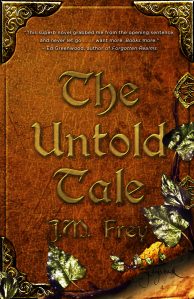
The Untold Tale (J.M. Frey)
$5.99 Select options This product has multiple variants. The options may be chosen on the product page -

Arrivals (J.M. Frey)
$1.99 Select options This product has multiple variants. The options may be chosen on the product page -
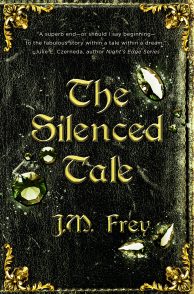
The Silenced Tale (J.M. Frey)
$5.99 Select options This product has multiple variants. The options may be chosen on the product page -

Ghosts (J.M. Frey)
$1.99 Select options This product has multiple variants. The options may be chosen on the product page


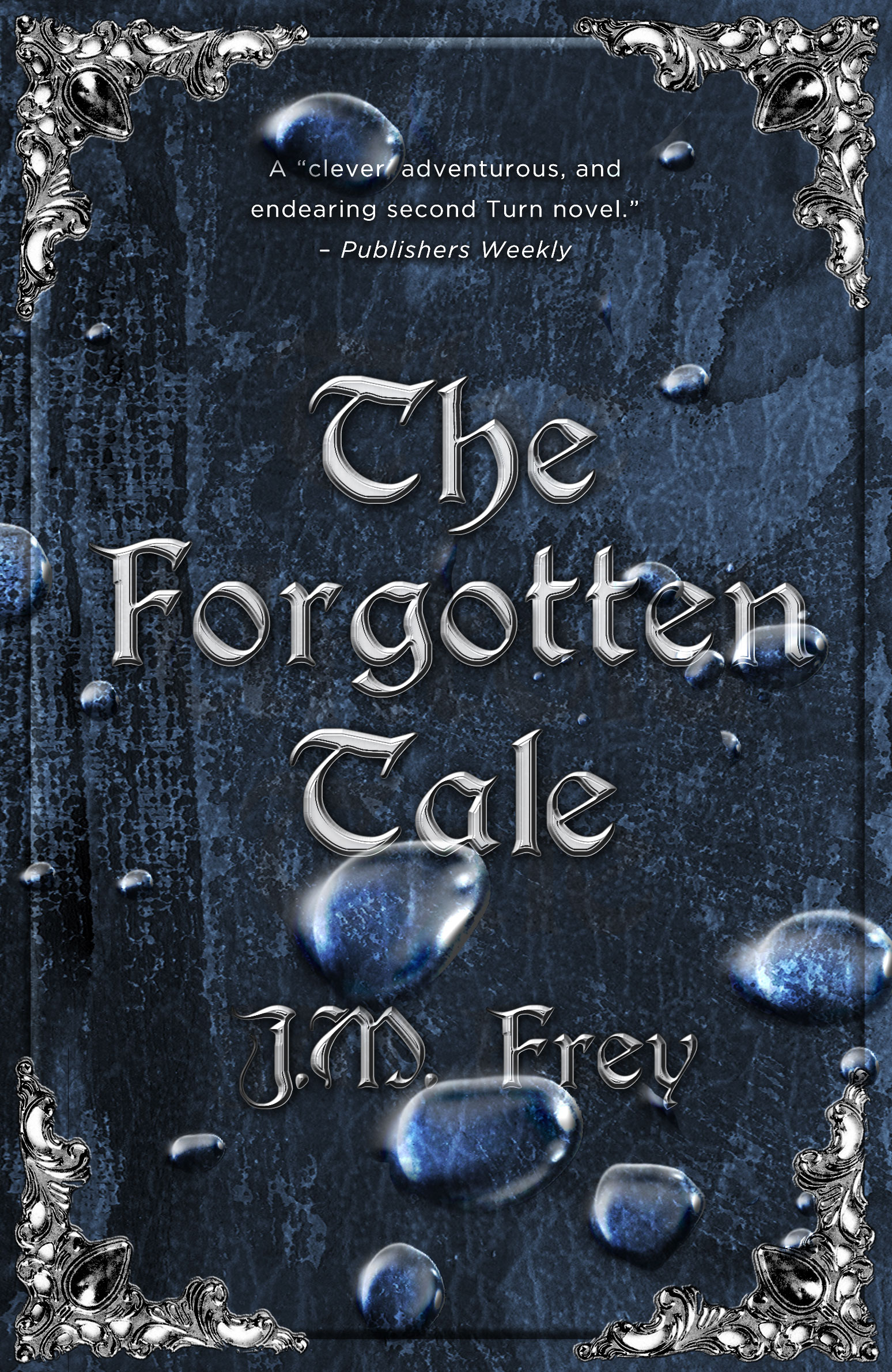
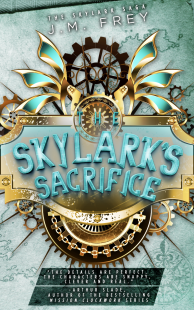
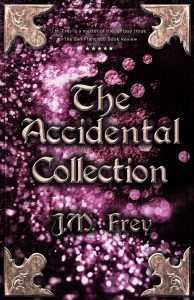
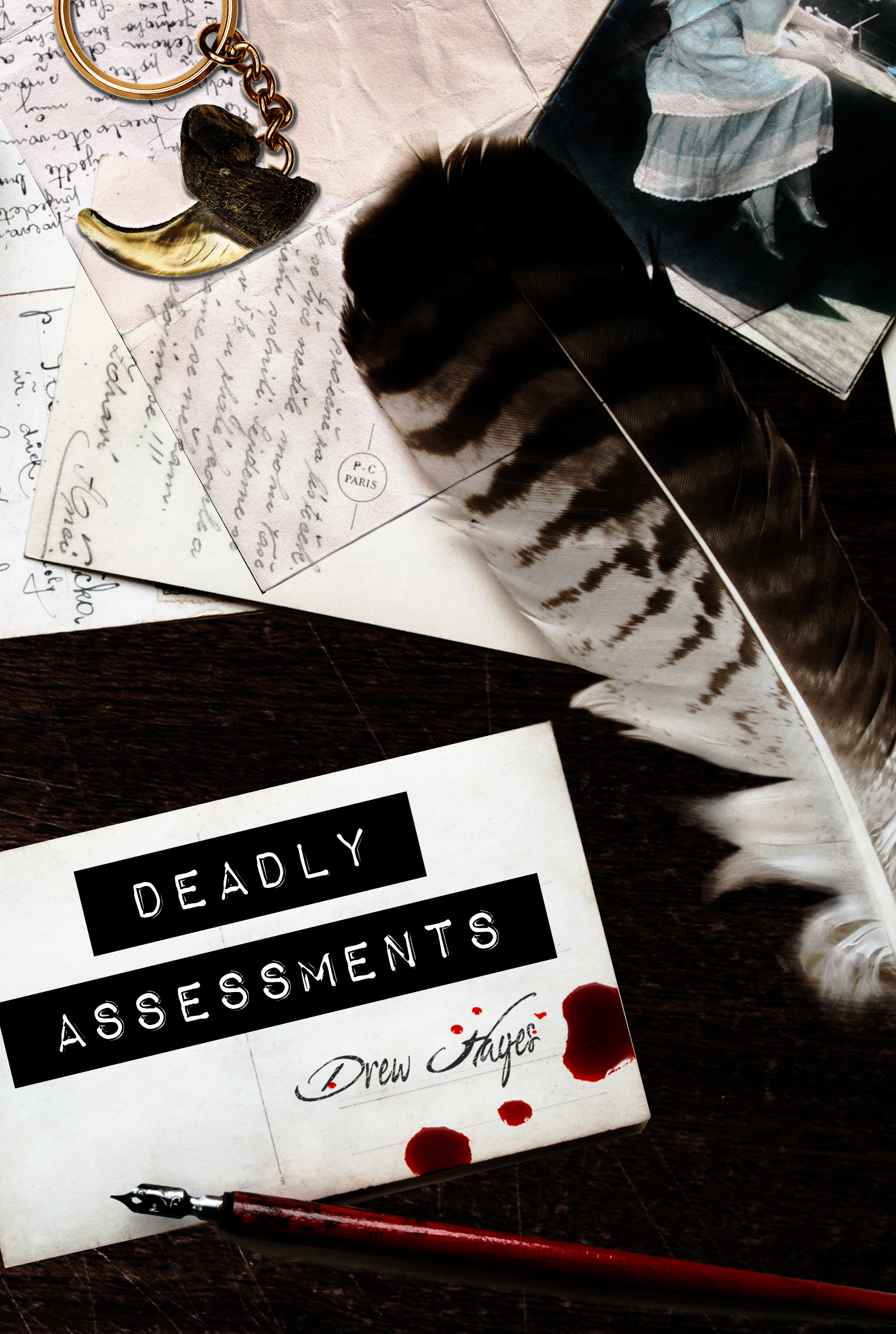

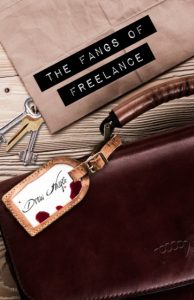
Reviews
There are no reviews yet.